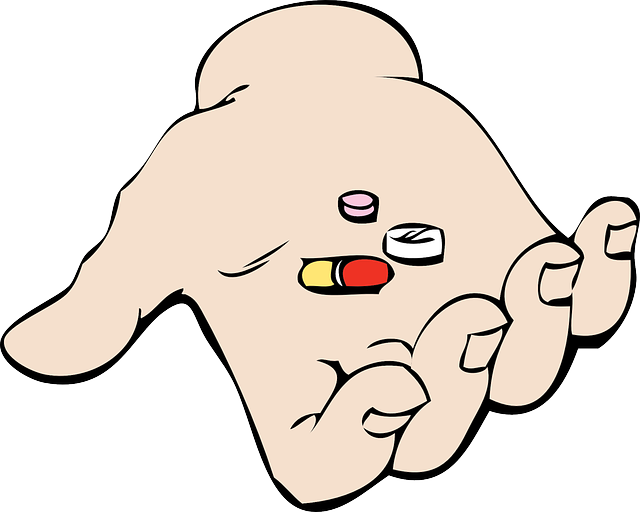Crisis management and natural coping strategies are crucial for overcoming benzodiazepine addiction. Through holistic methods like sleep coaching, trauma-informed care, and online support, individuals can navigate stress, reduce emotional intensity, and build resilience for long-term mental wellness. Incorporating deep breathing, physical activity, mindfulness, and yoga enhances crisis navigation skills. Building resilience focuses on natural adaptation, addressing root causes with evidence-based treatments combined with holistic wellness programs. Specialized addiction centers offer tailored support for a comprehensive, "natural" path to recovery from benzodiazepine addiction.
In today’s fast-paced world, effective crisis management skills are essential for navigating high-stress situations and overcoming challenges like benzodiazepine addiction. This article explores the profound impact of crisis management in the context of benzodiazepine addiction recovery, offering practical guidance on natural coping strategies and building long-term resilience. Discover how these techniques empower individuals to get sober naturally and foster a lasting sense of wellness.
- Understanding Crisis Management and Its Role in Overcoming Benzodiazepine Addiction
- Natural Coping Strategies for High-Stress Situations
- Building Resilience: Long-term Skills for Navigating Stressful Events
Understanding Crisis Management and Its Role in Overcoming Benzodiazepine Addiction

Crisis management skills are invaluable when it comes to overcoming benzodiazepine addiction. Benzodiazepines, often prescribed for their calming effects, can lead to dependency and withdrawal symptoms that mimic a crisis due to abrupt cessation. Understanding crisis management involves learning coping mechanisms tailored to high-stress situations, which is crucial in the context of benzodiazepine abuse. This includes developing strategies to manage intense emotions, improving stress reduction techniques, and fostering resilience – all key components in a natural path to recovery.
Natural recovery from benzodiazepines often incorporates holistic approaches like healthy sleep habits coaching, trauma-informed care, and participation in online recovery support groups. These resources provide alternative coping mechanisms, address underlying issues that may have contributed to the addiction, and offer a sense of community for ongoing support. By combining these strategies, individuals can navigate their journey towards sobriety more effectively, leveraging crisis management skills to maintain long-term mental wellness.
Natural Coping Strategies for High-Stress Situations

In moments of high stress, especially during challenging situations like trying to get sober from benzodiazepines naturally, our bodies instinctively release hormones that prepare us for what’s known as the “fight or flight” response. To effectively manage this, nature offers a plethora of coping strategies. Simple practices such as deep breathing exercises can help calm the nervous system and reset the body’s equilibrium. Regular physical activity is another powerful tool; it stimulates the release of endorphins, which act as natural painkillers and mood elevators, promoting mental clarity and reducing anxiety.
Mindfulness meditation and yoga are also effective ways to cultivate a sense of inner peace. These ancient practices teach individuals to focus on the present moment, quieting the mind’s chatter and fostering a deeper connection with one’s body. Incorporating these natural coping mechanisms into daily routines can significantly enhance an individual’s ability to navigate crisis situations, thereby underscoring the importance of Crisis Intervention Training in equipping people with the skills needed to recognize emergency situations and respond accordingly, even without relying on external support from Rehabilitation Centers Near Me.
Building Resilience: Long-term Skills for Navigating Stressful Events

Building resilience is a crucial aspect of managing crises and stressful events, especially when it comes to long-term recovery from substance use disorders like benzodiazepine addiction. Unlike quick fixes or temporary solutions, resilience is about cultivating skills that enable individuals to adapt and bounce back from challenging situations naturally. It’s akin to learning how to “get sober from benzodiazepines naturally” by addressing the root causes of addiction rather than solely focusing on symptoms.
Evidence-based medications for withdrawal management can play a vital role in mitigating acute symptoms, but fostering resilience involves adopting holistic wellness programs that prioritize nutrition, exercise, and stress management. By integrating these practices into daily routines, individuals strengthen their mental and physical well-being, making them better equipped to navigate future crises. Additionally, addiction treatment centers specializing in specific substances can provide tailored support, combining evidence-based treatments with holistic approaches for comprehensive recovery and improved overall well-being.
Crisis management skills are invaluable tools in overcoming benzodiazepine addiction and navigating high-stress situations naturally. By understanding coping strategies and building resilience, individuals can enhance their ability to handle challenging circumstances without relying on medication. Adopting natural coping mechanisms and long-term resilient habits not only aids in recovering from benzodiazepine addiction but also equips people with the means to maintain a sober lifestyle and improve overall well-being. This holistic approach to crisis management is a game-changer, offering sustainable solutions for those seeking to get sober from benzodiazepines naturally.






